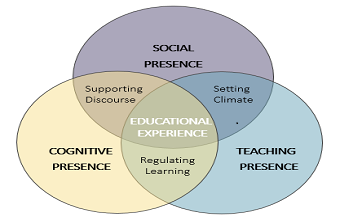Building Community and Connections

The Resource
The Human Services Foundation certificate, offered by Mohawk College, markets to learners who need help finding where they fit under the large umbrella of programs offered. This resource highlights one course, Individual and Family Relationships, collaboratively redesigned and redeveloped to improve learners’ schedules and boosts their engagement with the content, peers, and their instructors.
Why We Set Out to Build This Resource
We, the faculty, were looking for ways to offer more flexibility to our learners and avoid consistent scheduling during the “evil hours” (e.g., 8 a.m. Mondays). As a result, we decided to move select courses online.
How We Did It
Just as it takes a village to raise a child, it takes an entire Centre for Teaching and Learning to raise a course. Tight timelines and vacation schedules forced a different type of collaboration. As the instructor and subject matter expert, I provided the content that learners would explore and ideas for assessment. Next, a curriculum development specialist, instructional designer, and librarian developed activities around this core content. Following the Community of Inquiry Framework, the collaborators provided triggers to ignite learners’ interest in the exploration, followed by opportunities for them to integrate new knowledge through varied assessment, and ending with prompts for meaningful reflection.
Each module begins with a detailed agenda and ends with a comprehensive checklist detailing required tasks. These elements allow learners to plan more effectively and connect more easily with content. We encourage learners to stay connected through multiple paths of access. Exploring and interacting with core concepts through articles, videos, and audio complement learners’ preferences and provide options for different learning situations.
Our built-in flexibility continues through assessment, with learners presented with a variety of options to demonstrate learning outcomes. For example, in the five modules highlighting issues affecting the family, learners complete two of five assessments. These assessments are 1) a structured, online debate on guaranteed income; 2) a pitch to patrons to support anti-family violence initiatives; 3) a critical analysis of mass media’s portrayal of mental illness; 4) a PSA design challenge for substance abuse; and 5) an annotated bibliography on coping with chronic illness in the family.
Lessons Learned
Moving the course online required us to promote peer-to-peer communication in a more planned and intentional way. We found that requiring learners to post discussions and responses before moving forward in the content forced them to connect with each other, while other course material was crowd-sourced and extended by learner contributions. “Get help; Give help” discussion topics with an option to post anonymously furthered peer-to-peer learning and links.
Using the Community of Inquiry Framework as a guide allowed us to check for and ensure there were opportunities for all course connections: learner to content, learner to learner, and learner to us. We also increased our chances that learners would connect with resources by building the course using free (and often open) tools instead of costly textbooks or courseware. Injecting games built from free resources into the course triggered learner interest in the module content.
Finally, the “collaboration in isolation” approach worked well because of the strong ties and trust already existing between Human Services and the Centre for Teaching and Learning; you may want your “family” under one roof for your initial collaborations.
Access
Feel free to visit our redesigned course, moved from Desire2Learn’s Brightspace to the open Canvas learning environment.
URL: https://tinyurl.com/MohawkFamily
Contributed by
Marco Felvus, Mohawk College of Applied Arts and Technology


Feedback/Errata